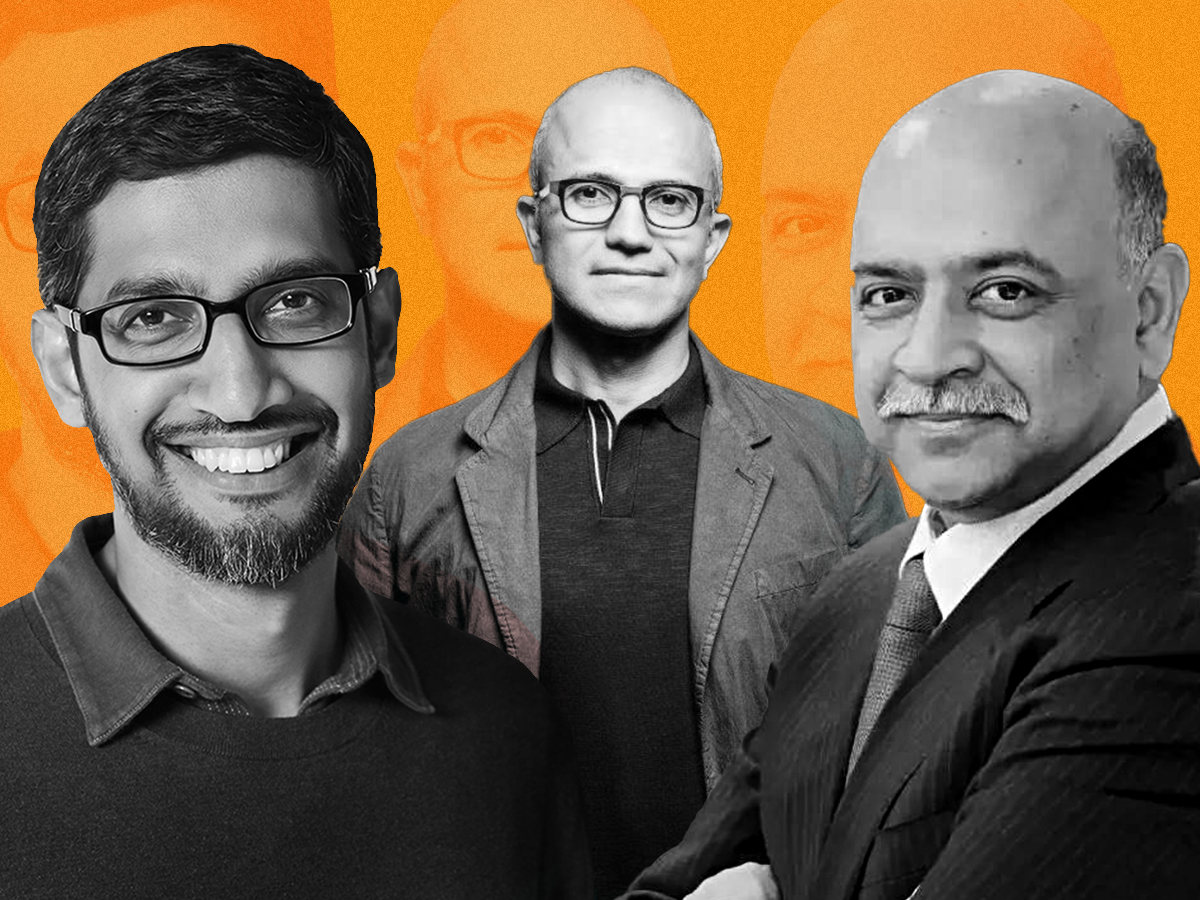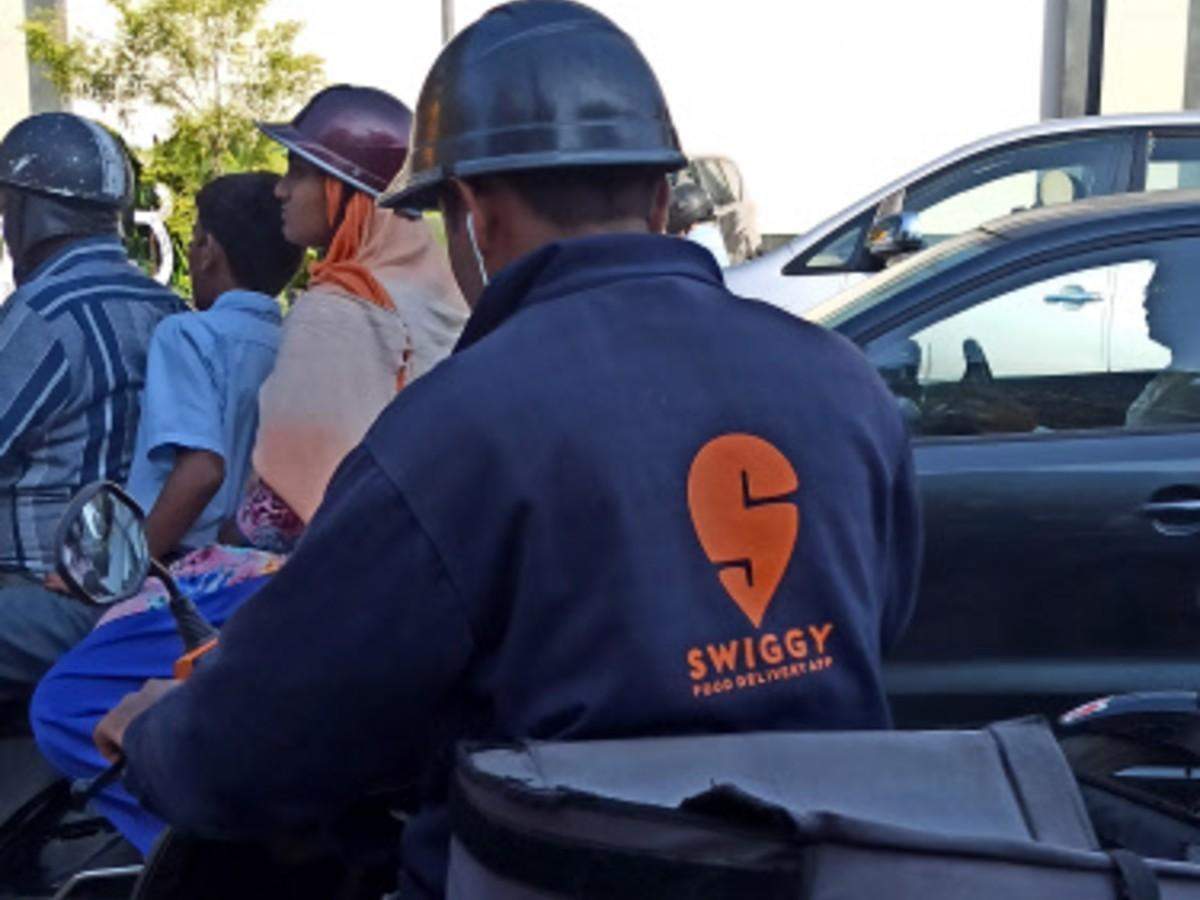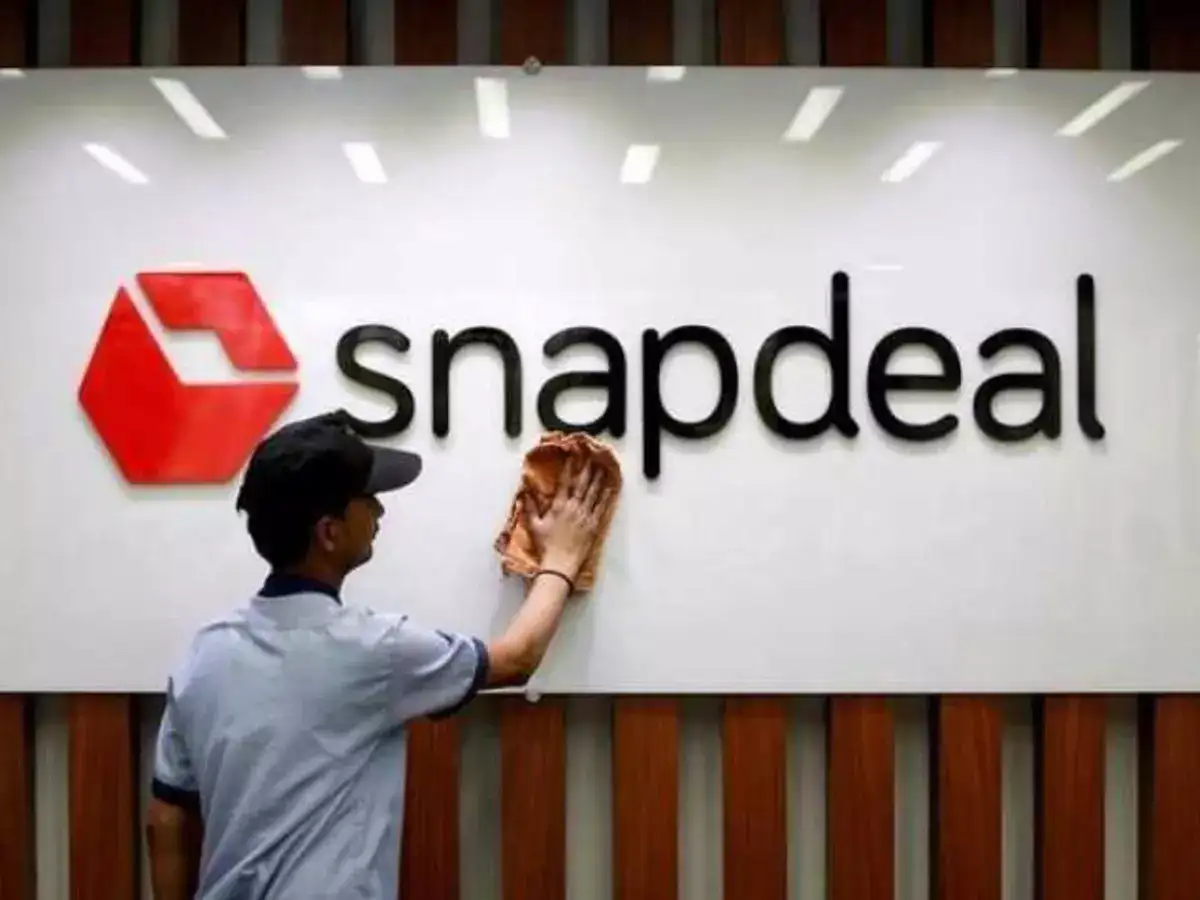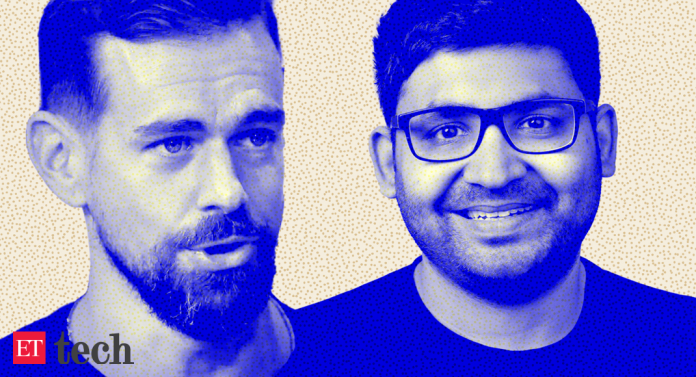Also in this letter:
- Zomato launches ‘Wings’ to help restaurants secure funding
- JioMart turns to WhatsApp to take on Amazon
- Snapdeal targets $250 million India IPO in 2022
Parag Agrawal inherits a crown of thorns from Jack Dorsey
Jack Dorsey (left) and Parag Agrawal.
By naming Parag Agrawal as chief executive officer, Twitter Inc. is turning inward, choosing a low-profile technologist to steer a social network that has underperformed the market, haltingly introduced new products, and struggled to moderate harmful content under a leader long criticised for divided attention.
Agrawal, 37, was named on Monday to succeed cofounder Jack Dorsey after a four-year stint as chief technology officer, a role in which he oversaw Twitter’s pursuit of blockchain and other decentralised technologies.
The challenges: Agrawal will inherit Twitter’s political scuffles—including criticism over its ban on former US President Donald Trump as well as friction with India’s ruling party—the Bharatiya Janata Party. And he’ll have to chase aggressive goals to step up user growth, double revenue and expedite product execution.
- Agrawal takes over a company that has been slow to roll out new products and features for years, but has started to move faster, make more acquisitions and push into areas that might expand the business, like live audio and subscriptions.
Twitter’s accelerated targets for growth were put in place after activist investor Elliott Management Corp. took a stake in early 2020 to pressure the company to jumpstart its business. After making initial changes that satisfied Elliott in 2020, in February 2021 Twitter announced goals to double annual revenue by 2023, and to continue to grow its user base by 20% each of the next three years.
On the plus side, Agrawal’s appointment means Twitter will have a full-time CEO for the first time in years. Dorsey’s position as leader of Square was one of Elliott’s main criticisms of the social network.
Here are some facts about the new Twitter CEO:
- A decade with Twitter: Agrawal joined Twitter as a software engineer and has been with the company for over a decade. He was appointed chief technology officer in October 2017. He oversaw Twitter’s technical strategy and was responsible for improving the pace of software development, while advancing the use of machine learning across the company.
- Project Bluesky: Since December 2019, Agrawal has also been working on Project Bluesky, an independent team of open source architects, engineers and designers to combat abusive and misleading information on Twitter.
- Ex-Microsoft, Yahoo: Before joining Twitter, Agrawal worked at Microsoft Corp, Yahoo and AT&T Labs Inc. in their research units, according to his LinkedIn profile.
- Stanford Graduate: Agrawal has a Ph.D. in computer science from Stanford University and a bachelor’s degree in computer science and engineering from Indian Institute of Technology, Bombay, according to his profile on Twitter’s “about” page.
Agrawal joins growing list of Indian-origin CEOs

(From left) Alphabet CEO Sundar Pichai, Microsoft’s Satya Nadella and IBM’s Arvind Krishna.
With his elevation as the chief executive of Twitter, Agrawal joins a growing list of Indian-origin CEOs at the helm of some of the biggest US technology firms. At age 37, he’s the youngest CEO of any S&P 500 firm. The appointment also amplifies the role played by immigrants in Silicon Valley.
Agrawal’s ascension at Twitter follows that of Sundar Pichai at Alphabet Inc., Satya Nadella at Microsoft Corp., Arvind Krishna at IBM, Shantanu Narayen at Adobe, and Ajay Banga at Mastercard.
Twitter reacts: Thousands of users expressed pride in how people of Indian origin were now leading some of the largest tech companies in the world.
The IIT Bombay grad also received wishes from Google CEO Sundar Pichai, who tweeted, “Wishing you the very best ahead @jack, and congrats @paraga and @btaylor – excited for Twitter’s future!”
Some in India quipped about the country’s brain drain, while others in the US pointed out the opportunity the country offers its immigrants. The world’s richest person, Elon Musk, CEO of Tesla Motors and SpaceX, flipped that narrative on its head.
“USA benefits greatly from Indian talent!” Musk said in response to a tweet from Stripe CEO Patrick Collison on the success of Indians in the technology sector and the opportunity that America offers to immigrants.
Zomato launches ‘Wings’ to help restaurants secure funding

Food delivery platform Zomato has announced a new programme—Zomato Wings—to help restaurants secure funding.
A helping hand: The company’s cofounder Deepinder Goyal said that Zomato wants to help such businesses raise funds, as there has been limited investor capital inflow into the restaurant and cloud kitchen businesses over the last few years.
Quote: “While some large chains have attracted investors, we have barely scratched the surface – in the last three years, only about 25 restaurants and cloud-kitchens saw Series A or larger equity funding rounds, as per (industry tracker) Tracxn,” Goyal wrote in a blog post last week.
Tell me more: A four-member ‘Wings’ team, which is part of its overall supply team, will oversee these deals, a Zomato spokesperson told us. A few such deals are currently in the pipeline, the spokesperson added. The Wings team will help select restaurants and cloud kitchens to “position their story and metrics in the right manner and connect them with the right investors.” Zomato will not invest in restaurants or cloud kitchens, in order to avoid any conflict of interest with other brands.
Zomato’s bets: The company has taken bets on startups like logistics firm Shiprocket, discovery platform for offline retailers Magicpin and fitness platform Curefit, as part of its strategy to deploy $1 billion in young companies in the next 1-2 years.
Zomato, a publicly listed entity, is currently in talks to invest as much as $500 million in online grocery firm Grofers, which is also rapidly expanding its ultra-fast commerce vertical, ET reported earlier this month.
Thorny relationship with restaurants: The food delivery major has had a thorny relationship with India’s restaurant community over the last few years as the industry absorbed the shocks of multiple lockdowns due to the pandemic.
Earlier this year, the National Restaurant Association of India filed a complaint with the Competition Commission of India.
Their complaints and allegations: It alleged bundling of services, data masking, exorbitant commissions, and deep discounting. The industry body also urged resturants to “go direct” by getting on platforms like Dotpe and Thrive to circumvent the commissions charged by restaurant aggregators like Zomato and Swiggy among other reasons such as data collection.
- Goyal has maintained that the commission charged by Zomato are “completely justified as a large part of our commission goes towards the cost we incur to deliver the orders”.
A year of degrowth: The Indian food services market declined by 53% in FY21 compared to the previous fiscal, according to a report released by NRAI in October this year. The contraction in food services industry led to the permanent closure of over 25% of food business operators, which resulted in job losses of nearly 2.4 million in India, the report claims.
“Mostly dining out businesses which did not want to learn a new business model, struggled. We tried to reach out to them, showed them recovery numbers expecting they would pivot to what was thriving, but some restaurants didn’t listen to us,” Goyal said about restaurant owners whose businesses shrank when they pivoted from being only-dining out to doing deliveries.
Tweet of the day
JioMart turns to WhatsApp to compete against Amazon, Flipkart

Users can now use WhatsApp to order groceries from JioMart via a new “tap and chat” option, as Reliance Industries challenges the domination of Amazon.com Inc. and Walmart Inc.-owned Flipkart.
Tell me more: Delivery is free and there’s no minimum order value, according to JioMart users who got WhatsApp shopping invites with a 90-second tutorial and catalog. Among the daily essentials on offer are fruits, vegetables, cereal, toothpaste and cooking staples like paneer cottage cheese and chickpea flour. Customers can fill their shopping baskets within the app and pay either via JioMart or in cash when receiving their orders.
Cutthroat pricing: Mukesh Ambani’s Reliance Industries Ltd., which obliterated rivals in India’s telecommunications sector by selling $2 data plans and free voice calls, is deploying a very similar tactic—cutthroat pricing—to gain an edge in the country’s increasingly competitive e-commerce space.
Yes, but why? The move comes 19 months after Meta Platforms Inc., previously known as Facebook Inc., invested nearly $6 billion into Reliance’s Jio Platforms unit. The service taps into the popularity of India’s largest mobile operator, Jio, to reach users and relies on its biggest brick-and-mortar store chain, Reliance Retail, to execute delivery. WhatsApp has about 530 million users in the country and Jio has more than 425 million subscribers.
Swiggy Instamart crosses two million transacting users Swiggy’s ultra-fast grocery delivery service, Instamart, crossed 2 million transacting users, the food delivery platform said in an Instagram post.

Instamart specialises in grocery deliveries in 15-30 minutes. The pilot service was launched in August last year in Gurugram and Bengaluru. It has since expanded to 17 cities, amid a push to scale up this business vertical.
Swiggy cofounder and CEO Sriharsha Majety had told ET in an interview in July that as much as 25% of its revenue was coming from non-food delivery businesses, which would grow further in the next five years.
Ramping up: The company is investing a significant chunk of its recently raised capital to scale up its non-food delivery verticals. ET reported on September 28 that Swiggy was in talks to close another financing round at a $10-billion valuation, double that of its previous round, led by US asset manager Invesco, in what is a likely re-rating exercise stoked by Zomato’s market capitalisation.
Snapdeal targets $250 million India IPO in 2022

Snapdeal plans to file preliminary documents for an initial public offering of as much as $250 million in the next few weeks, people familiar with the matter told Bloomberg.
IPO plan: The e-commerce giant aims to go public in early 2022 after filing the draft red herring prospectus, the people said. Snapdeal, once considered the fiercest rival to Amazon India and Flipkart in the world’s fastest-growing major online arena, plans to raise at least $200 million at a $1.5 billion valuation, they added.
Snapdeal’s largest shareholders, which include Alibaba and SoftBank, are not selling shares.
Testing the waters: Snapdeal, which caters mainly to middle-class consumers neglected by its larger rivals, would become the largest tech company to test investor IPO appetite after the disastrous debut of Paytm’s parent, One 97 Communications Ltd. The fintech giant has lost about 20% of its share value since its debut on Nov. 18.
Year of the tech IPO: Snapdeal is hoping instead to replicate the strong showings of fellow online commerce firms like food delivery platform Zomato and beauty retailer FSN E-Commerce Ventures Ltd., which owns Nykaa. Food delivery startup Zomato and Nykaa’s initial public offerings were fully subscribed on the first day, pointing to immense retail investor interest in the space.
Britain directs Facebook to sell GIF maker Giphy

Britain’s competition regulator said today it has directed Facebook owner Meta Platforms to sell animated images platform Giphy after finding that the deal could harm social media users and UK advertisers.
Anti-competitive practices: The Competition and Markers Authority (CMA) said the decision was in line with provisional findings that Facebook’s acquisition of Giphy would reduce competition between social media platforms and in the display advertising market.
Quote: “The tie-up between Facebook and Giphy has already removed a potential challenger in the display advertising market …By requiring Facebook to sell Giphy, we are protecting millions of social media users and promoting competition and innovation in digital advertising,” said Stuart McIntosh, chair of the independent investigation for the CMA.
Facebook, now rebranded Meta Platforms as the parent company of the eponymous social media network, said it disagreed with the decision. “We are reviewing the decision and considering all options, including appeal,” a spokesperson for Meta said.
Today’s ETtech Top 5 newsletter was curated by Arun Padmanabhan in New Delhi. Graphics and illustrations by Rahul Awasthi.

























